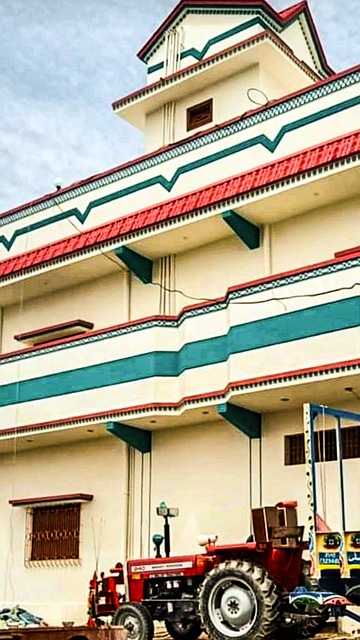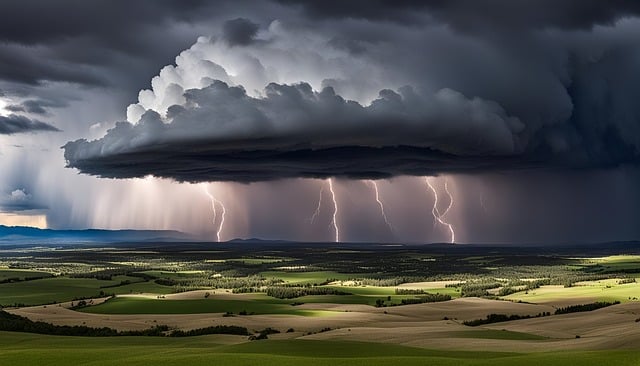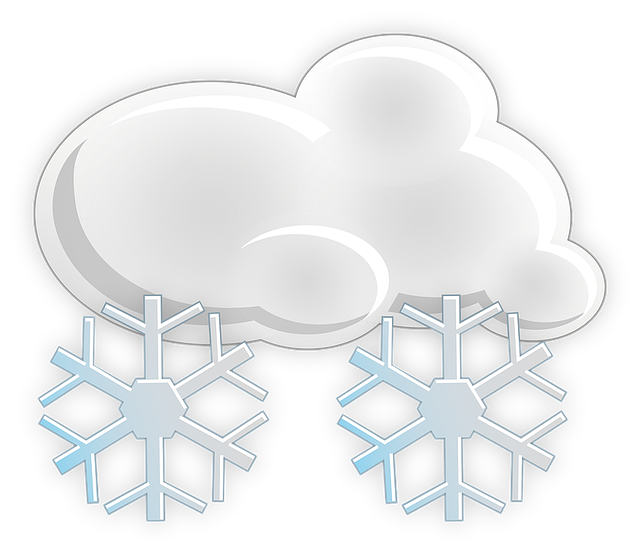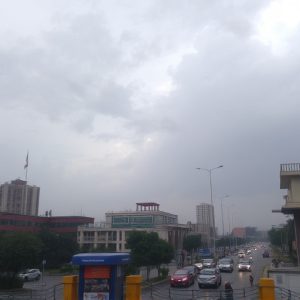Decoding Karachi’s Weather: A Radar Perspective on Current Conditions and Forecasts
Currently, Karachi is experiencing clear skies with occasional clouds, and the humid weather is tem…….

Currently, Karachi is experiencing clear skies with occasional clouds, and the humid weather is tempered by a gentle sea breeze, making it comfortable for outdoor activities with minimal risk of rain due to recent dry conditions. However, the monsoon season could bring sudden showers, increasing the potential for urban flooding in certain areas. Radar systems provide detailed real-time data on weather patterns, enhancing meteorological understanding and enabling accurate forecasts, which are crucial for maritime safety, air quality prediction, and managing the impacts of seasonal rainfall. These radars track wind patterns, storm severity, and precipitation types, offering vital information for urban planning, emergency response, and public safety, particularly in adapting to the risks associated with Karachi's monsoon season. Additionally, radar data aids in air quality monitoring, allowing for prompt environmental interventions and health-protective measures, contributing significantly to the well-being of Karachi's residents.
Karachi, a bustling metropolis on Pakistan’s Arabian Sea coast, faces an array of climatic challenges throughout the year. As the monsoon season approaches, understanding weather patterns becomes crucial for the safety and well-being of its residents. This article delves into the multifaceted capabilities of radar weather data in illuminating Karachi’s current and forecasted weather conditions. We will explore how radar technology detects precipitation patterns, analyzes wind speed and direction, and contributes to air quality monitoring, offering a comprehensive view of the city’s atmospheric landscape. By leveraging this real-time data, residents and authorities can be better prepared for extreme weather events, ensuring a safer environment for all. Join us as we unravel the insights that radar weather data provides for Karachi today.
- Current Weather Conditions in Karachi
- Radar-Detected Precipitation Patterns
- Wind Speed and Direction Insights
- Forecasting Extreme Weather Events with Radar Data
- Radar's Role in Air Quality Monitoring for Karachi
Current Weather Conditions in Karachi

Radar weather data provides a real-time snapshot of the atmospheric conditions prevailing over Karachi. As of today, the data indicates that the city is experiencing generally clear skies with scattered clouds drifting overhead. The humid air carries a gentle breeze from the Arabian Sea, which moderates the temperature and brings a sense of comfort to the city’s inhabitants. Precipitation levels are currently low, with no significant rainfall reported in the recent past, suggesting that outdoor activities can proceed without major interruptions due to wet weather. However, residents are advised to stay updated on any changes as monsoon season can bring unexpected showers and potential urban flooding in parts of Karachi. The radar also tracks wind patterns, which are crucial for maritime activities along the coast and for predicting air quality, both of which are vital for the safety and well-being of Karachi’s residents.
Radar-Detected Precipitation Patterns

Radar-detected precipitation patterns provide a detailed and dynamic overview of weather conditions over Karachi, particularly when it comes to rainfall distribution and intensity. The network of radar systems installed across the region captures the reflectivity of raindrops, allowing meteorologists to map out precipitation in real time. This data is crucial for understanding the spatial coverage of storms, identifying dry spells within the monsoon season, and assessing the severity of weather events. The radar’s resolution enables the detection of light precipitation that might otherwise go undetected by less sensitive systems, offering a more comprehensive picture of the atmospheric conditions. Additionally, the temporal resolution of these radar systems provides insights into the evolution of weather systems over Karachi, allowing for timely and accurate weather forecasting and warnings to mitigate potential hazards associated with heavy rainfall or flooding. This real-time monitoring capability is indispensable for urban planning, emergency response, and enhancing public safety in the bustling city of Karachi.
Wind Speed and Direction Insights

Radar weather data plays a pivotal role in providing insights into wind speed and direction, which are crucial for understanding the atmospheric conditions over Karachi today. The wind data derived from radar systems offer real-time measurements of wind velocity and its trajectory across the city. These readings help meteorologists and urban planners to anticipate weather patterns, potentially influencing everything from flight operations at Jinnah International Airport to the planning of outdoor events. For instance, strong winds can affect air traffic by affecting takeoff and landing conditions, while milder breezes might be welcomed for their cooling effects during Karachi’s hot summer months. The wind direction is equally important as it determines the airflow patterns that could impact local pollution dispersion or the natural ventilation of enclosed spaces. Additionally, understanding the prevailing wind directions can inform decisions on waste management and water drainage to mitigate flooding risks during the monsoon season. Radar-based observations allow for a comprehensive analysis of wind dynamics in Karachi, enabling better preparation and response to weather-related events.
Forecasting Extreme Weather Events with Radar Data

Radar weather data plays a pivotal role in forecasting extreme weather events, offering real-time monitoring and high-resolution observations that are instrumental in meteorological analysis. The network of radar systems installed across regions like Karachi can detect precipitation, track storm movements, and identify severe weather phenomena such as thunderstorms, hail, and tornadoes. These radars operate by emitting microwave signals that reflect off atmospheric particles and return to the radar antennae, allowing meteorologists to visualize the spatial and temporal evolution of weather systems. By analyzing the Doppler effect in these returning signals, it is possible to discern the direction and speed of wind within a storm, which is crucial for issuing timely warnings and guiding evacuation procedures when extreme weather is imminent. The integration of radar data with numerical weather prediction models further enhances the accuracy of forecasts by providing ground truth data, thereby improving the predictive capabilities for extreme events such as heavy rainfall, flash floods, or cyclonic activity that can impact Karachi and its surrounding areas.
Radar's Role in Air Quality Monitoring for Karachi

Radar systems play a pivotal role in monitoring air quality in Karachi, a coastal metropolis with a complex urban environment. These radar-based tools are instrumental in detecting and analyzing atmospheric particulates, which can have significant impacts on the health of residents and the overall environmental quality. By tracking aerosols and pollutants, radar weather data enables meteorologists and air quality specialists to identify patterns and sources of pollution. This data is crucial for understanding the dynamics of particulate matter, including their origin, dispersion, and potential health risks. Moreover, radar systems can offer real-time insights into the concentration and movement of pollutants, which is vital for timely interventions by environmental agencies and policy makers to mitigate adverse effects and enforce regulations that protect public health. The integration of radar data with ground-based monitoring stations further enhances the accuracy and completeness of air quality assessments, providing a comprehensive picture of the atmospheric conditions affecting Karachi today.
Radar weather data offers a comprehensive view of the atmospheric conditions over Karachi, providing valuable insights into current weather patterns, precipitation, wind dynamics, and air quality. By analyzing this data, residents and authorities can better prepare for and respond to weather events, enhancing safety and well-being. The utility of radar in forecasting extreme weather and monitoring air pollution underscores its critical role in meteorological science, making it an indispensable tool for understanding Karachi’s daily weather landscape today.


